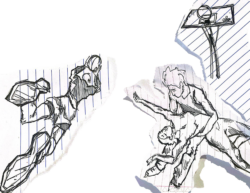Two weeks ago, PBS released a long-anticipated Frontline documentary entitled League of Denial: The NFL’s Concussion Crisis. Journalists worked themselves into a frenzy over the sobering stories of former players like Troy Aikman, Steve Young, and Junior Seau. But today that story has been all but forgotten, which begs the question: Why has this issue been so quickly laid to rest? And how did such a gripping film fail to change the minds of NFL executives?
Originally, ESPN and PBS were working on the project together. However, just two months before the broadcast of the documentary, ESPN withdrew from the project, after having spent over a year working on the film with PBS. Certainly, the ESPN brand would have bought the documentary a lot more traction, but, in the end, ESPN had to prioritize its relationship with the NFL. That isn’t to say that ESPN journalists weren’t excited to be a part of the investigative film, but their hesitation to attach their names to the project goes to show the pervasive taboo surrounding concussions and football. The NFL still refuses to acknowledge any wrongdoing.
And I don’t disagree. NFL players receive million-dollar paychecks each season and are fully aware of the risks associated with playing football. How could they not be? The same risks are present in middle school, high school, and college football. The presence of these risks at the lower levels may be a result of the NFL’s policies, but they still exist.. And the risks and excitement of these physical matchups is what keeps the NFL (and ESPN for that matter) in business.
Players have no incentive to speak up about these risks, which they knowingly take on when they sign those million-dollar contracts, when the topic is even taboo in the locker room. “It’s a shame-based issue,” former Patriots Linebacker Ted Johnson said at a conference on concussions last year, following the suicide of former teammate, linebacker Junior Seau. “It makes you feel like less of a man.” Concussions and other internal, invisible injuries don’t offer a convincing platform for change, so the discussion falters where it is most important—in the locker room.
While the NFL can’t be held responsible for this discussion, nor the culture, there is an undeniable correlation between football-induced concussions and chronic traumatic encephalopathy. CTE is a condition caused by repetitive concussions. It is a disease that causes continuous deterioration of brain tissue. In the past five years, examinations of 12 deceased NFL players’ brains have been conducted. All 12 brains exhibited evidence of CTE. There is certainly a causal link between the NFL paycheck and CTE, but the blame clearly cannot fall on the League’s shoulders.
But when watching League of Denial, all I wanted to do was blame the NFL for institutionalizing this cultural taboo. I found it impossible to blame the players for the culture when watching Junior Seau’s kids talk about their dad or Troy Aikman’s agent recalling a particularly terrifying concussion. But in the end, the choice to play and the assumed risks come back to them. So instead of assigning this impossible blame, both the players and the NFL should be looking for ways to remedy the epidemic.
Let me be clear, I have no desire for the rules of football to change. And if I’m being honest, I have no desire for the culture to change either. I love watching the Pats defense get riled up—there isn’t much I find more satisfying than watching Jerod Mayo drill a receiver into next week. (And watching CBS replay it two or three times generally isn’t too bad either.) But as much as I hate to admit it, attitudes like mine are the problem with NFL culture today.
While advocates for concussion awareness may swell slightly in numbers and a few parents may think twice about letting their children play football, when it comes down to it, the message won’t hit home until the NFL culture changes.
I think Patriots quarterback Tom Brady best epitomized the de-legitimizing culture surrounding concussions. “I don’t think about it at all,” he said in a response to the documentary. “I’m not overly concerned.”




